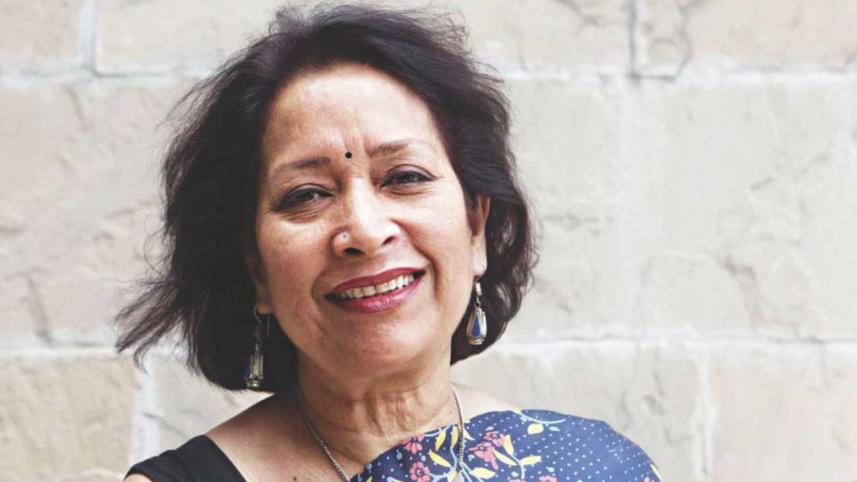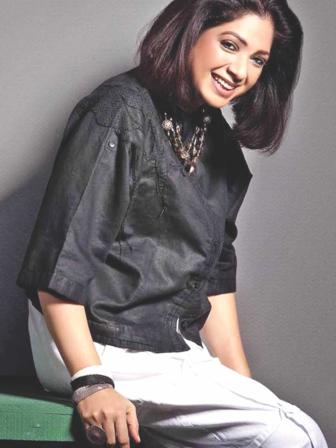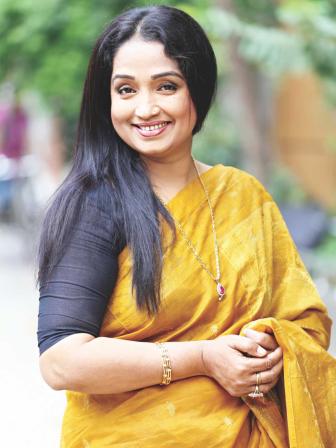WOMEN'S VOICES

Women around the world have come a long way from the days when they engaged in fierce struggles to gain the right to vote. Today many women have broken the glass ceiling in corporate boardrooms, the service and development sectors, media, arts and so on. But the fact remains that they live in an inequitable world. How many women in our part of the globe really have the freedom of choice --do they have the right to move around freely, dress the way they want, spend their earnings in a way they see fit or even to determine their family size? And what about gender discrimination at every level--be it at the workplace, home or even on the streets, But there are nevertheless a minority who see the brighter side of an otherwise dark picture and we spoke to some of them:
“As a bilingual author I juggle my skills very carefully” – Shamim Azad
Robina Rashid Bhuiyan
Among Bangladesh's rich literary traditions, transnational writings have been acknowledged little on the forefront of national literature, despite rapid cultural changes into hybridity brought about by globalisation. However that has recently changed with the conferment of Syed Waliullah Literature Award 2016 on Shamim Azad for her literary contributions. A Bangladeshi born British writer, Shamim Azad's diverse range of works cover poetry, novels, essays and plays, and play a key role in not only representing our cultural activities at home in the West, but also at home from abroad. As a woman writer, she is both representative and an example of women and for women in Bangladesh and international territories. In a recent conversation, the writer speaks about her identity as a bilingual author, as well as her views on women empowerment.
This year's theme on International Women's Day is about women in the changing world of work, and the implications globalisation has on women. What are your views on this? How can women in our nation create advantages for themselves in our society?
Shamim Azad: We have to change, and the only time for change is now. Change cannot occur without boldness and being true to your goals. Everyone is capable of action and inspiring others, which begins with friends and families, then next of kin, and then to a group of people associated with your social community. This is how social changes are made. To be bold is to take a stand and let others know you are no more taking unfair deals. Challenges will be inevitably met, and every decision must be made wisely in order to be constructive. I believe we must work with teenage girls more, as they are at that tender age when core values are built, and have their identities explored.
As a bilingual author, how does writing as a woman differ in English and Bangla?
Shamim Azad:It does not really matter how many languages you know; it all comes down to being a writer, a job that is a grave responsibility. My responsibility is to address people while also speaking my mind. I consider myself lucky to be a writer with two worlds in her hands. As a bilingual author I juggle my skills very carefully. I import the skills and strategies from the West into our country, and in turn I take back my heritage and try to disseminate it abroad. No matter where we go, we never leave Bangladesh. Wherever we are moving about in the world, we are a slice of Bangladesh, taking our culture wherever we go. Right now I am part of the executive body of Exiled Writers Ink, an organisation that gives immigrant writers a platform to share their work all over the world.
Throughout your years of writing as a woman, how does writing in the present time compare to when you first began?
Shamim Azad:The world has changed, and so have the people and our targeted readers as a result. I've had to familiarise myself with digitisation in order to reach the young readers of today, and use social media to write my drafts so I can receive readers' responses. Writing content has not changed, but my approach to reach out to the hearts and minds of the youth has.

Redefining the feminine ideal - Up close with Maheen Khan
Robina Rashid Bhuiyan
Along with the perceived roles of women in society, physical representations of women have been crucial in shaping their presence within culture. With social reforms in education during British imperialism, the sari had been modified to enable women to venture out of their homes, and for some time was exclusively associated with members of the upper caste. However times have changed, and fashion has been important in documenting those changes. To talk about fashion's role in female empowerment, The Daily Star reached out to eminent designer Maheen Khan, who helms the brand Mayasir and is also the founder of Fashion Design Council of Bangladesh.
Since you have been in the fashion industry for about 30 years. How has fashion shaped the image of women for these years?
Maheen Khan: Bangladeshi fashion industries have just taken off. In our initial years, we have always felt the need to incorporate our roots into our designs. However Bangladeshi women are working and assuming positions of power in job sectors, and gaining more public visibility. So women are taking fashion seriously, taking great care into how they want to be seen by others. I think the trend is towards more global, transcontinental, transcultural clothing that is functional. Although the sari is our national dress, a lot of women are not comfortable wearing it in the workplace anymore, preferring a more homogenous, asexual look. Also women who are empowered are moving away from the over the top looks inspired by Bollywood, opting for something more natural and simple, while maintaining sophistication.
How has fashion empowered women as both consumers and producers?
Maheen Khan: Fashion here is driven more by individual choice rather than trends. Fashion must cater to all the roles they want to play, as well as give them the freedom to be able to do so. I have been involved with the world of fashion since 1986, and I work with mostly women starting from the grassroots level. In that case we take our work to them instead of uprooting them from their natural environment. We are the second generation of entrepreneurs who are engaging women in production, but if you look at NGOs and other organisations working in the field of women's empowerment, the changes they brought about have been phenomenal. Not only do women have more financial autonomy within their communities and allow them to contribute to their families, but it gives them more agency over decision making and giving their positions more power.
What changes do you hope to see in the future?
Maheen Khan:We should never forget our roots and must always practise our cultural heritage. I would like for people to enjoy the living art of our grassroots fashion and enable women to be more confident, more professional and be more emboldened to act out their choices.

“I prefer to regard myself as a human being first…” - -- Momena
Shah Alam Shazu
Popular theatre artiste, Momena Chowdhury has been an active member of Aranyak Nattyadal for the last 27 years. Before joining the theatre troupe, she did stage plays in her district town. While she makes regular appearances on stage, she has appeared in TV plays and films too. The multi-talented artiste spoke about what International Women's Day means to her and more in a recent talk with The Daily Star.
Did you face any barriers when you first ventured on stage?
Momena: I have been associated with Aranyak Nattyadal for 27 years now. Before this, I acted in plays in my district town in the '80s. I never faced any objections from family or brother who is a cultural exponent. But, initially I did not get any societal support because at that time people looked askance at women theatre artistes. But I was unstoppable. Later, I became a mother and my children were a great support to me.
Does International Women's Day mean much to you?
Momena: The very nomenclature International Women's Day is offensive to me. I prefer to regard myself as a human being rather than woman. I never enjoy the day.
Tell us about stage plays that earned you raves.
Momena: I acted in the mono drama “Lal Jomin”, the story of a 13-year-old freedom fighter. The 113th show of the play will be staged on March 10. I enacted 17 characters in the play. This was my first stage play outside Aranyak Nattyadal.
What are your favourite plays by Aranyak Nattaydal?
Momena: “Joyjoyonti”, “Iblish”, “Lebedef”, “Sangkranti”, “Mayur Singhasan” and “Ebong Bidyasagar”.



 For all latest news, follow The Daily Star's Google News channel.
For all latest news, follow The Daily Star's Google News channel.
Comments